Protecting the brake pads and other metals is the core job of the dust shield. What if it gets damaged or rusted? In such a case, the faulty dust shield may cause some trouble for the entire braking system.
However, can brake dust shields make noise? How to stop it? Yes, it makes noise due to wear, tear, dust and rust. And you can stop the dust shield noise by repairing it or replacing it with a new one. Apart from that, regular cleaning might reduce the noise to a great extent.
We will go deep and see how we can solve the brake dust shield noise problem. Besides, the related factors will be there, including the solutions, noise type, and more.
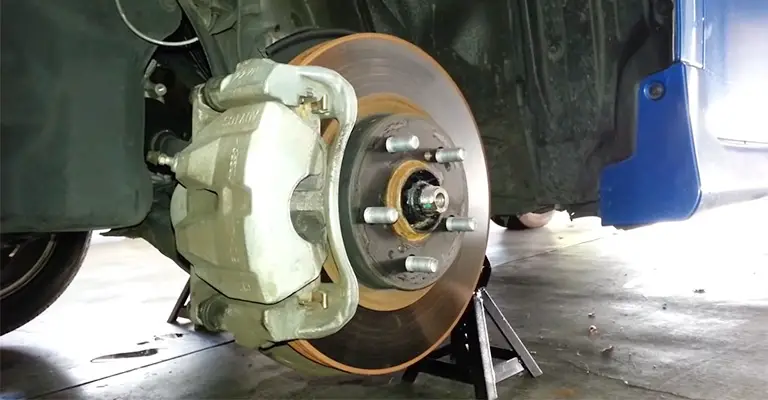
How Do Brake Dust Shields Make Noise?
You already know that Brake Dust Shields make noise. Though these shields are supposed to protect your braking parts, they may get damaged and create braking noise.
Let’s see how and why the brake dust shield makes noise.
Worn Shields
The Brake Dust Shields make noise due to wearing. It happens with old shields that can’t protect the brakes from getting dust and rust.
As a result, the shields decay over the years. After a certain time, you get to hear the noise. Moreover, the worn shield might be covered with dust and pads.
That’s why you don’t know the source of the noise. So, once you clean the shields, they’ll reveal the worn metal parts, which you can fix later.
Dust and Rust
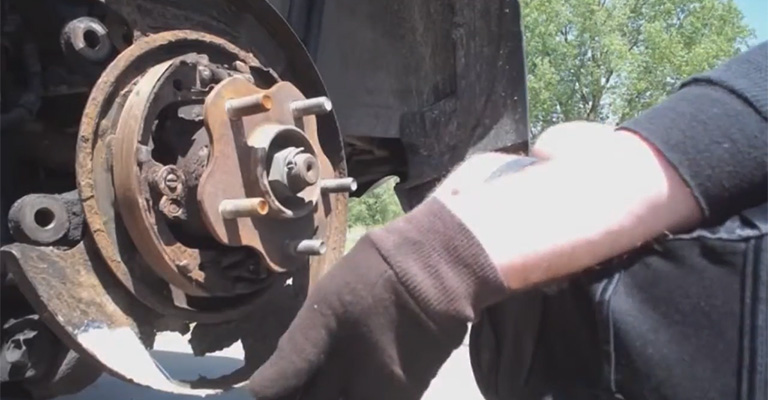
Another reason is dust and rust. Once your dust shields get old, they will accumulate dust. The dust will rust the entire shields within a month or so.
Consequently, the brake dust shield won’t do its job as before; they create a braking noise every time you place your foot on the brakes.
Lack of Lubricant
The brake caliper, disc, and pads are all connected to each other; therefore, they get friction every time you press the brake pad. The brake fuel plays a crucial role in lubricating brake pads and other metals.
Sometimes, the brake fluid level gets lower (and you may forget to refill it).
Therefore, the lack of lubrication will damage the brake dust shields and pads. And the corrosion and wear ultimately make the dust shields create noises.
Faulty Braking System
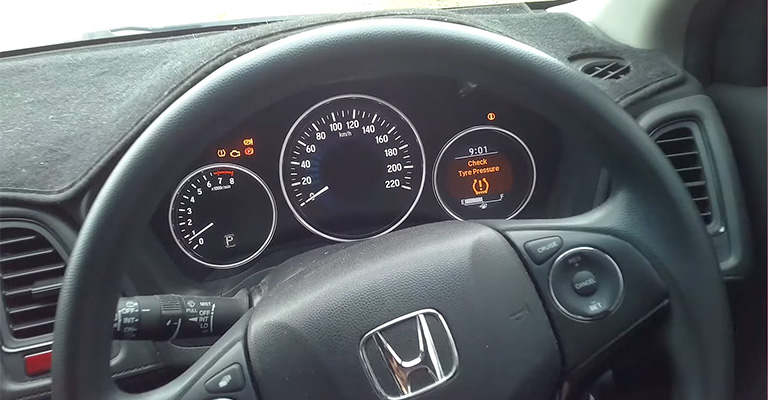
A faulty braking system can also result in your dust brake shields making noises. Let’s say you install a new brake pad and a dust shield, but the brake caliper or any other part is worn.
In that case, the new dust shields will also create noise, though it has no contribution.
You can only detect the damaged part once you remove the shields and brake pad. If you still get the noise, you must check the entire braking system in order to find the exact reason.
How to Stop Brake Dust Shields Noise?
There are four ways to stop brake dust shield noise, though you can count more. These tips and solutions must remove that sound; otherwise, you’ll need to replace the dust shield.
Let’s see how these tips stop the brake dust shield noise.
Clean and Remove Dust
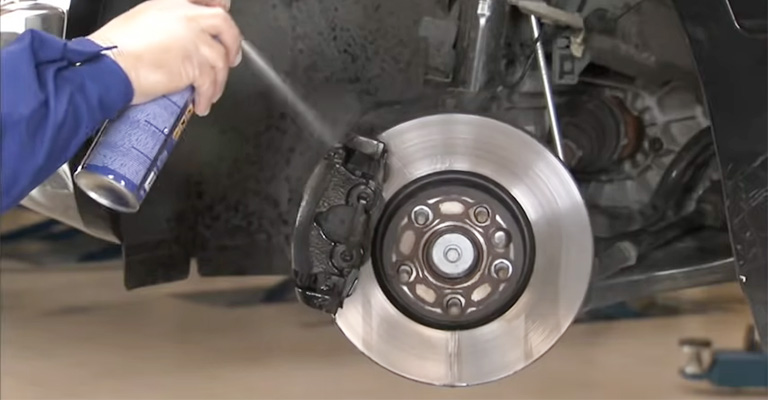
If you ever get the noise from the brake dust shields, check their surface.
The dust and dirt may increase their size and create that noise. Some may go under the shields and damage the brake pads and calipers.
In that case, you should clean the shields and remove the dust accordingly. You can use a stiff brush and clean the entire braking system, which will surely reduce the noise.
Use Brake Fluids
After doing the above things, it’s time to check the fluid level and refill it soon. Be sure that the braking system has enough lubricant.
Once you lubricate the metal and remove the dust, the shield won’t create any further noise.
Replacing Brake Dust Shields
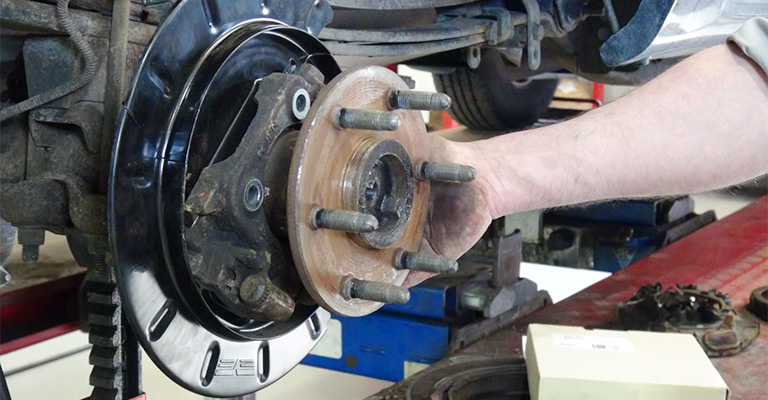
The noise must be gone when you clean the dust and apply the brake fluid. What if you still get the same noise or a different sound?
In that case, you should check the shield condition and find out why.
The shields may be decayed and need immediate replacement. In such a case, you can’t expect to remove that braking noise permanently by cleaning and applying lubricant.
You should buy a new pair of brake dust shields and replace them with the existing ones.
Install a New Pad, Caliper, Brake Disc, or Rotor
Sometimes, the newly installed dust shields result in braking noise. It happens if you have a faulty braking system or any damaged parts. In that case, installing a new shield won’t solve the problem.
To get rid of this problem, you should check other braking parts, including pads, calipers, or discs. If any of these are damaged, consider changing them to prevent the braking noise.
What Noise Does the Brake Dust Shields Make?
The brake dust shields mainly get touched by the brake rotor. Therefore, they create a scraping noise once the shields are damaged or worn.
The dust shields might also create a squealing sound that won’t vibrate or grind.
Whatever sounds you hear, you should check the dust shields’ condition and ensure they are in good shape.
People Also Asked
Can you stop the brake dust shield noise?
Yes, you can stop the brake dust shields’ noise by removing dust, repairing the bent shields, and replacing the damaged brake parts. You may follow the above steps to stop dust shield noise forever.
What do brake dust shields do?
The Brake dust shield is a thin metal layer that protects the brake pads, calipers, and rotors from extreme heat, dust, and rust. In fact, the dust shield is solely responsible for protecting the entire braking system.
What’s the replacement cost of brake dust shields?
Depending on the quality and brand value, the brake dust shield replacement cost may vary from $20 to $200. Here, the labor cost might play a significant role.
How do you clean brake dust shields?
You can use a brush and water to clean the brake dust shields. First, rinse the wheels and remove the leftovers. Then, cool them down and scrub them with a brush and remove the dust. That’s how you can clean the brake dust shield.
Closing Words
Can brake dust shields make noise? How to Stop? Yes, it makes a scraping and squealing noise because of the decayed or damaged pads, rotors, calipers, or worn shields. And you can follow the four given tips to stop that sound once and for all!
Among them, regular cleaning and lubrication may give you amazing results. Otherwise, changing the damaged braking parts would be your ultimate solution.
Leave a Reply